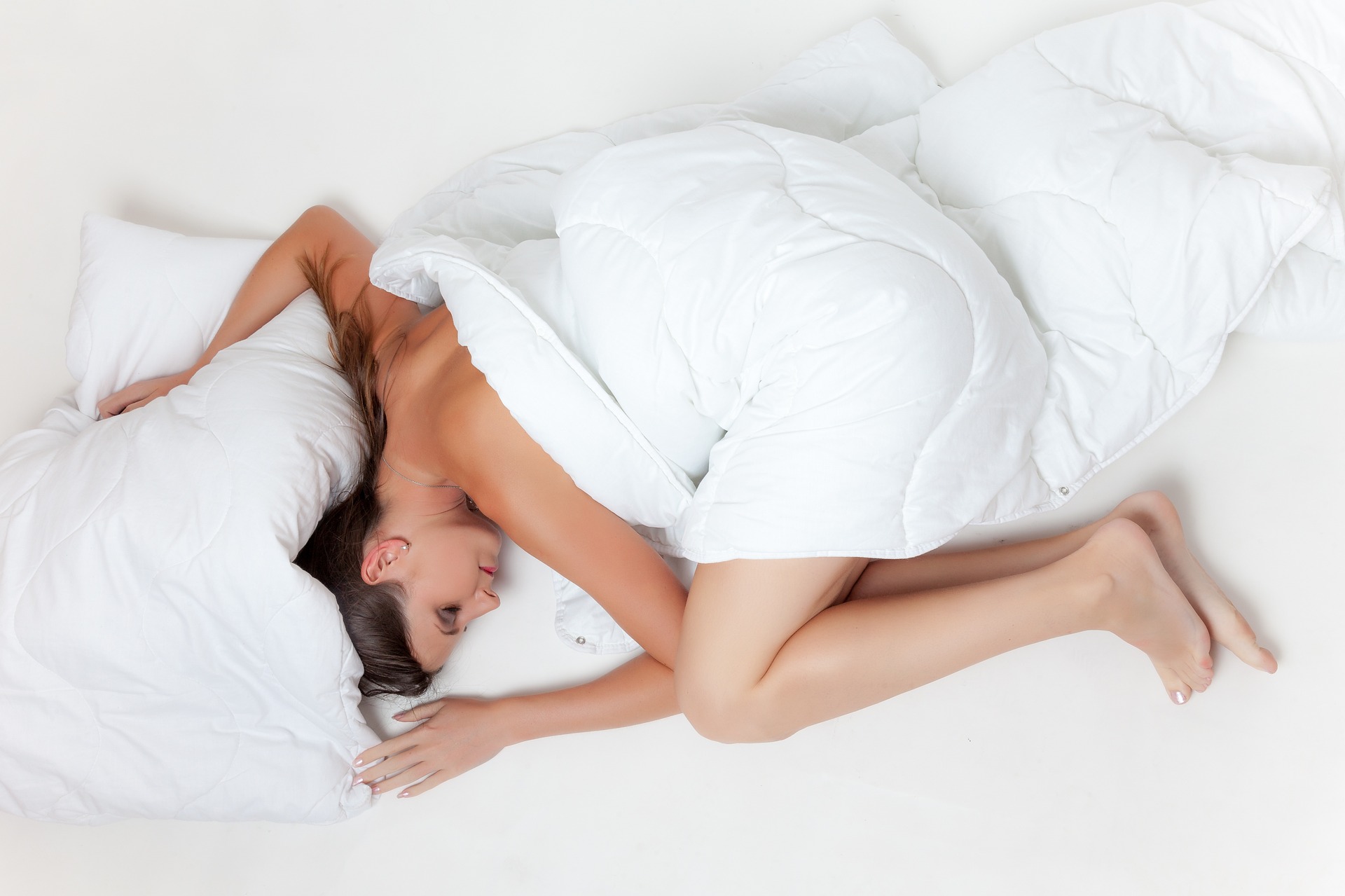
Do you regularly have problems sleeping? You may be suffering from insomnia.
In this guide, you’ll find out how to work out if you have insomnia, what causes this chronic restlessness and how you can cure it naturally without the use of medication.
How do you know if you have insomnia?
The NHS says that you may have insomnia if you regularly:
- struggle to go to sleep
- wake up during the night several times
- find yourself lying awake at night
- wake up at the crack of dawn and can’t go back to sleep no matter how hard you try as a result
- feel tired during the day, but still find it difficult to nap
- feel irritable and exhausted throughout the day
- struggle to concentrate during the day because of tiredness
These symptoms can persist for months or even years if left untreated.
What causes chronic insomnia?
Insomnia can be caused by a variety of things:
- psychiatric conditions
- medical conditions
- bad sleeping habits
- medications that you are taking
- your biology
“Chronic insomnia is usually a result of stress, life events or habits that disrupt sleep. Treating the underlying cause can resolve the insomnia…” Mayo Clinic
Psychiatric conditions
Any stressful concerns you have may be responsible for your difficulty sleeping. This includes any stressful life events that you may be experiencing, including losing your job, going through a divorce or losing a loved one.
Medical conditions
Some medical conditions (for example, arthritis, asthma and lower back pain) can also lead to insomnia. Other conditions that have been linked to bad sleep include cancer, diabetes, heart disease, Parkinson’s disease and Alzheimer’s disease.
Bad sleeping habits
Do you have an irregular sleeping schedule, an uncomfortable place to sleep or spend time looking at a screen before bed? These bad habits could be causing your sleep problems. Late nights, shift work and watching TV before bed could all be contributing to your insomnia.
Medications that you are taking
According to the Mayo Clinic, “Many prescription drugs can interfere with sleep, such as certain antidepressants and medications for asthma or blood pressure. Many over-the-counter medications — such as some pain medications, allergy and cold medications, and weight-loss products — contain caffeine and other stimulants that can disrupt sleep.”
Your biology
Biological factors such as conditions associated with chronic pain, breathing difficulties, or abnormal thyroid function could be causing your restless nights.
Is insomnia a medical condition?
Insomnia is a sleep disorder. Although it is a medical disorder, it’s not a medical condition.
The term “medical condition” is very broad and encompasses all diseases, disorders and conditions that usually receive medical treatment. An example of a medical condition is pregnancy or cystic fibrosis. You don’t need medical treatment to cure insomnia. There are many simple and natural treatments that you can use to get your sleep back on track.
How to cure insomnia naturally
There are many ways to cure insomnia naturally without the use of sleeping pills which can have common and potentially harmful side effects. While sleeping pills may help you get to sleep, this is only a short-term solution. Long-term use of sleeping pills can lead to many risks and dangers and should be avoided.
“Prolonged sleeping pill use can lead to addiction and a number of health-related consequences.” DrugRehab.com
Not only can sleeping pills cause addiction, but also death. The sedating effects of mixing alcohol and sleeping pills can cause you to stop breathing entirely. Even consuming something as innocent as a grapefruit can lead to oversedation when taking some sleeping pills. Fortunately, there are many natural ways to cure insomnia.
Natural ways to cure insomnia
Eliminating your insomnia could be as simple as changing a few habits. Maintaining regular sleeping patterns, regular exercise and avoiding caffeine can all help you get a good nights’ sleep.
If you can identify the underlying cause of your sleepless nights, then it becomes even easier to get rid of your insomnia effectively and naturally. Using a natural remedy such as a deep sleep night oil will help you ease off to sleep. With regular use and by combining it with simple relaxation techniques before bed, the therapeutic effect of the oil will start to work its magic.
Most notably, lavender has been used to aid sleep for centuries and its effect on sleep quality has been researched on many occasions.
“The journal Evidence-Based Complementary and Alternative Medicine published an article that evaluated the effects that aromatherapy had on anxiety, sleep quality and vital signs within an intensive care unit (ICU) patient population. (9) The researchers blended lavender, roman chamomile, and neroli with a 6 : 2 : 0.5 ratio and discovered that this aromatherapy (AT) strategy “significantly” lowered anxiety and improved sleep quality compared with conventional nursing intervention.” Dr. Eric Zielinski, DrEricZ.com
There are some natural insomnia remedies (such as this relaxing Energy Oil) which contain both lavender and chamomile, two plants known for their soothing ability to send people to sleep safely.
While natural remedies may be adequate for most people, therapy has also been known to help ease the symptoms of insomnia.

Cognitive behavioural therapy for insomnia
Although commonly used to treat anxiety and depression, rough sleepers can also benefit from cognitive behavioural therapy.
Also known as CBT, cognitive behavioural therapy is a type of therapy which can help you manage your insomnia by changing your thoughts and behaviours.
“Cognitive Behavioral Therapy for Insomnia, often called CBT-I, is an approved method for treating insomnia without the use of sleeping pills.” National Sleep Foundation
Cognitive behavioural therapy is widely regarded as a safe and effective means of managing the effects and symptoms of chronic insomnia. Furthermore, when paired with a natural sleeping aid, CBT can be a great way to start sleeping soundly without the need for dangerous or addictive medication.
What to do next
In order to cure your insomnia, you should consider doing the following:
- Implement a regular sleep schedule, eliminating any daytime naps
- Arrange to meet with a counsellor or psychotherapist that offers cognitive behavioural therapy for insomnia
- Introduce a natural sleep aid into your bedtime routine, preferably one containing lavender and chamomile
- Avoid consuming caffeine or looking at screens in the evening
- Start going for a short walk a few hours before bed